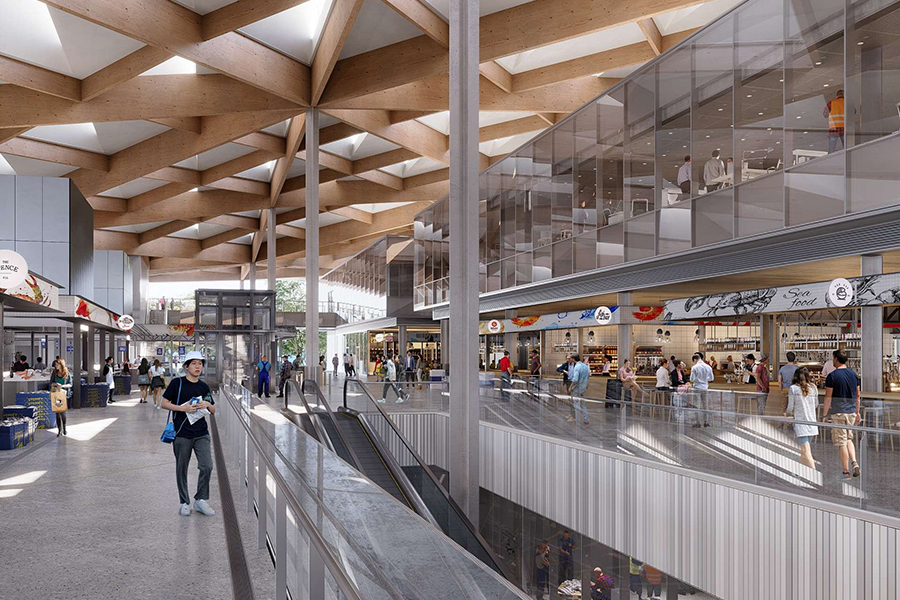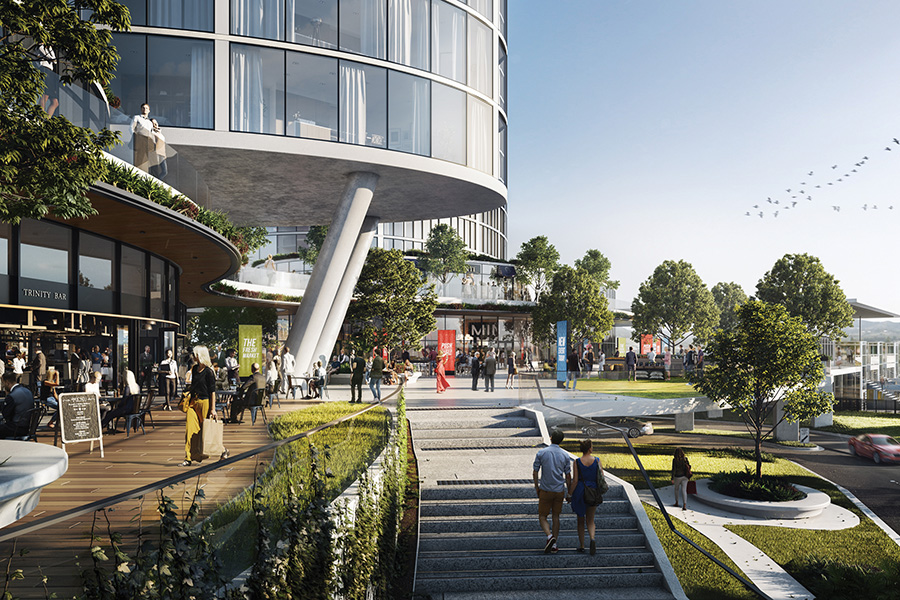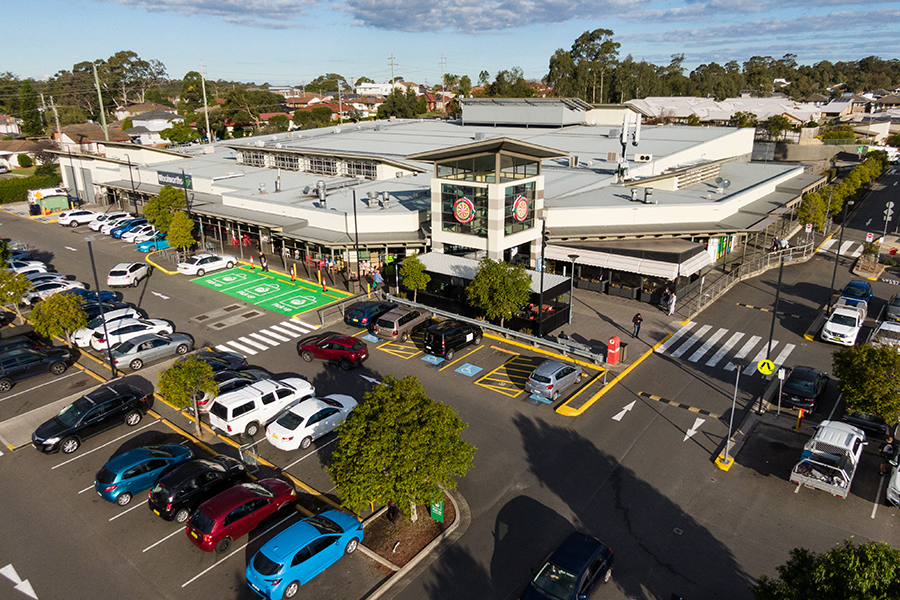Future Food provides food consultancy for some of Australia’s best fresh food markets; both existing and under redevelopment. With exposure to projects such as the new Sydney Fish Market, Adelaide Central Market (both under redevelopment), plus Melbourne’s Queen Victoria Market and Camberwell Market, Allan Forsdick shares his insights and research into the opportunities, challenges, management and direction of fresh food and specialty produce market-retail.
Markets historically, have been vibrant, dynamic hubs for fresh produce, specialty foods, and unique cultural experiences. They have served as social settings, a connection to growers and the land that they harvest, in some cases for more than a century. They are a time-honoured trading ritual that give us a tapestry of experience beyond the supermarket or the shopping centre environment. However, in the face of shifting retail landscapes, evolving lifestyles, and a changing demographic, there is a need to reinvent the marketplace to ensure that markets remain relevant to their shoppers and their routines.
In the 21st century, the retail landscape has evolved rapidly, influenced by factors such as e-commerce, changing consumer preferences, and the impact of the COVID-19 pandemic. Modern shopping centres and supermarkets (frequently a source of competition for markets) incessantly fine tune their product mix, trading environments, positioning and opening hours to better meet the needs of their customers; so too then must markets.
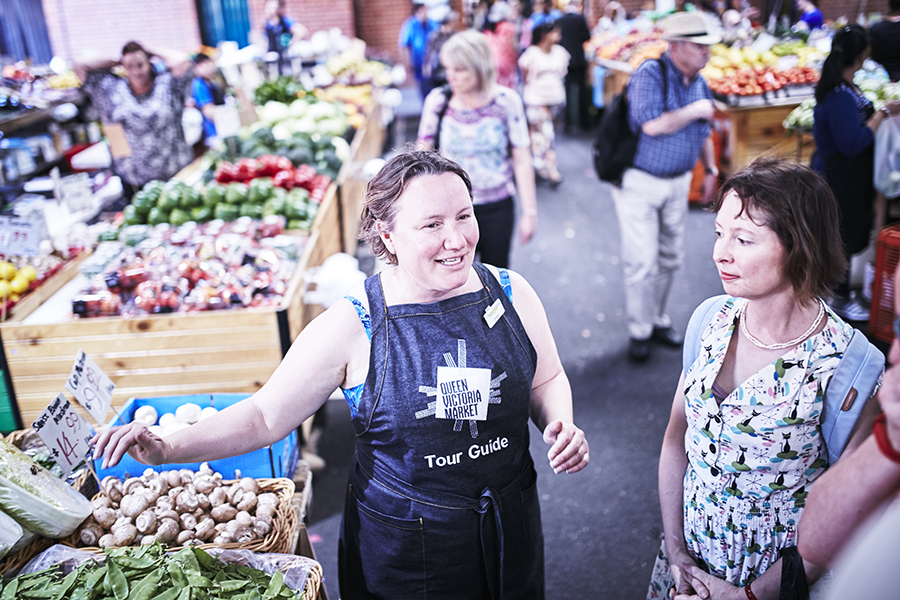
Image credit: Queen Victoria Market
As consumers, our busy lifestyles dictate that all members of the household are frequently working, requiring us to squeeze shopping trips into lunch breaks, a quick shop on the way home from work or through the weekends.
The fabric of our cities’ communities, continue to shift the cultural and ethic swings in our population biases, requiring an approach that caters to a diverse population, not only preserving traditional offerings but also embracing new cultural experiences and foods to attract a broader range of shoppers.
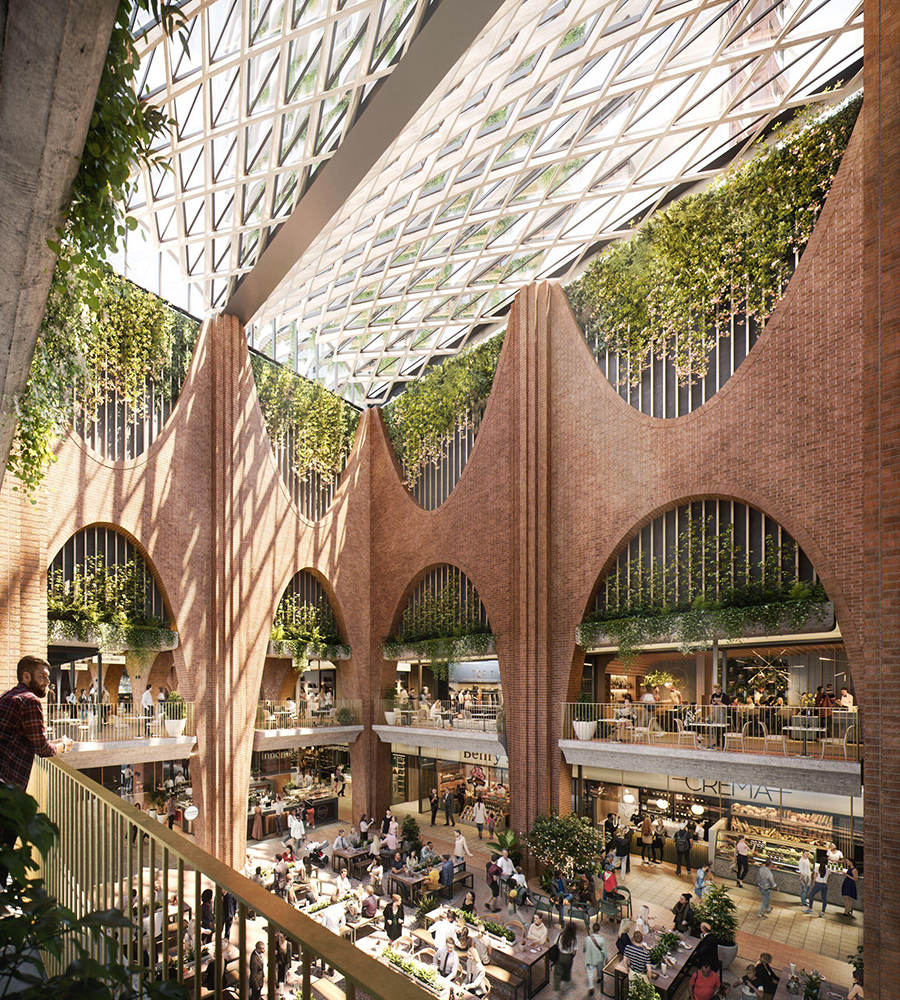
Adelaide Central Market’s $400m redevelopment is a transformative project for the city centre (opening 2026)
Our approach to these strategies requires us to take a collaborative approach. In a market context there are frequently a number of stakeholders. This can include traders and small businesses; customers and consumers; boards and councils; and frequently the city or state. Everyone has a perspective, and all must be considered to ensure that the best outcome for the Market is achieved. Ultimately it is about the health and sustainability of the whole entity that delivers success. No single perspective or methodology can independently ensure success, but rather a holistic and wide-ranging approach is necessary with various levels of prescription/recommendation as the final conduit to the future of food for the market.
After stakeholder engagement it is crucial to understand the very fabric of the market. It is our perspective that the only means to this end is through in-depth on-site observations. This provides a comprehensive understanding of the market’s operations, customer flows, and the specificities of each trader business. A hands-on approach is essential for crafting a practical and effective strategy, it is not possible to undertake this work without understanding the physical space and unique dynamics of operation.
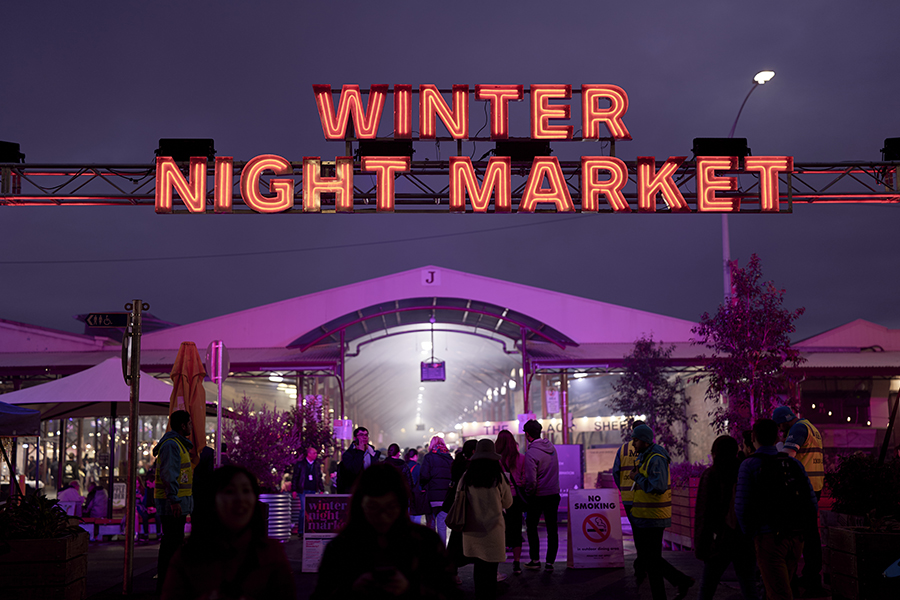
Queen Victoria Winter Night market is an essential part of a multi-faceted strategy for the market. Image credit QVM
So where to from here?
Regardless of the location of the market or its unique opportunities and constraints, a modern market approach is likely to benefit from a broad multi-faceted strategy. It will celebrate the diversity of its traders and customers. It will adopt an inclusive strategy focused on embracing the cultural diversity of its city/town; expanding the market’s offer to mirror the need-states of the communities they serve. This may not be limited to culinary biases, but may also include opening hours, convenience, and contemporary retail practices.
It may provide a digital interface in addition to the more traditional face to face shopping experience. It will deliver a variety of technology solutions (such as EFTPOS at an elementary level through to click and collect/home delivery). Integrating technology solutions such as online ordering, delivery services, and digital marketing enhance the shopping experience and appeal to a broader audience. At a stall holder/shop level, traders must evolve beyond a cash only strategy and static product mix to ensure a long-term plan for success.
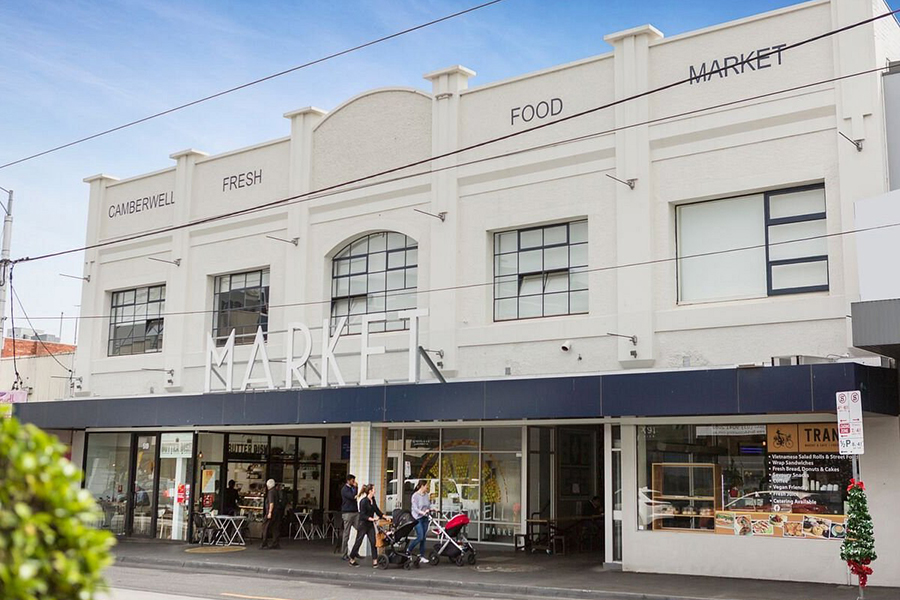
Image credit Camberwell Market via Tripadvisor
Market operations staff and retail management teams also need appropriate knowledge and resources to ensure that they can deliver on the strategy vision. They require contemporary management tools and an up-to-date approach. They need a data-driven style of management that ensures they are responding to the emerging trends in a considered and rationale manner.
Future Food, Fresh Produce and Specialty Produce strategies, deliver forward-thinking and adaptable methodologies to ensure continued relevance in the evolving retail landscape. By embracing diversity, modernising operations, and engaging the community while retaining their individuality and inherent identities, Markets are well-positioned to consolidate their status as the centre of our communities now and into the future.



